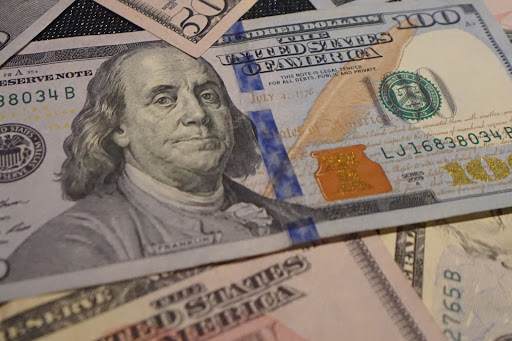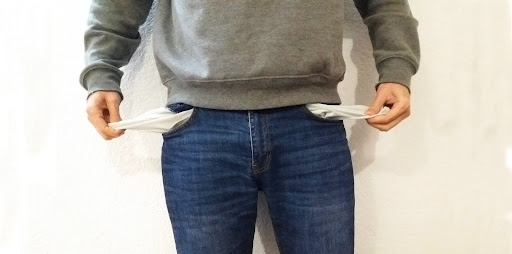
So far, the federal response to the economic crisis caused by the coronavirus pandemic has paid out $3,200 to eligible adults: $1,200 under the Coronavirus Aid Relief and Economic Security Act in March 2020, $600 in a December relief measure; and $1,400 under the American Rescue Plan, signed in March by President Joe Biden. However, some advocates and lawmakers are pushing for another round of stimulus aid that would effectively send recurring payments until the pandemic ends, despite the current debt the United States finds itself in. While money stimulates the economy, at what cost?
Omicron Causes Economic Problems
More than one-quarter of Americans struggled to pay their household expenses in December of 2022. The unemployment rate stands at 4.2%, higher than the pre-pandemic level of 3.5%. Many Americans who continue to struggle with joblessness and a weak labor market have called for another round of stimulus checks. These and many other reasons have economists worried over the spread of the Omicron variant, which has closed college campuses and prompted the cancellation of high-profile events, including Broadway shows. The surge in Omicron cases is “hitting demand in the leisure, entertainment, travel and restaurant industries, as indicated by high-frequency data,” said David Kelly, chief global strategist at JPMorgan Funds in a research note. “It will also lead to widespread absenteeism in early 2022, applying a significant drag to the economy in the first quarter, following a very strong fourth quarter.”

Petitions for a Stimulus
Almost 3 million people have signed a Change.org petition calling on lawmakers to pass legislation for recurring $2,000 monthly payments. As of December, more than 95,000 people have signed a petition from the Senior Citizens League, an advocacy group for older Americans, to provide a one-time $1,400 check to seniors. “It would help people buy an extra week of groceries for a few months,” said Mary Johnson, Social Security and Medicare policy analyst at the Senior Citizens League. “A stimulus payment would help them manage these higher rising costs.” Rising inflation in 2021 far outpaced the 1.3% benefit increase that Social Security recipients received at the start of the year. Even with the 5.9% cost-of-living increase that goes into effect January 2022, many seniors will fall behind inflation, which jumped 6.8% in November.
Economists have pointed fingers at the three rounds of stimulus checks for contributing to inflation. Americans had cash in their pockets, so they boosted spending on goods. Combine that with the supply-chain crunch, and the result was sharply higher inflation, according to economists. According to Brad McMillan, the chief investment officer at Commonwealth Financial Network, “one cause of inflation has been an explosion of demand driven by federal stimulus,” he noted in a December report. “But that stimulus has now ended. Yes, we will continue to face inflation and supply problems, but they are moderating and will keep doing so.”
How likely is a fourth stimulus check?
Wall Street analysts say it’s not likely, but anything could happen. The Biden administration has focused on infrastructure spending to spark economic growth, betting that an investment in roads, trains and other direct investments will help get people back to work and spur the ongoing recovery. We are not too sure how this will work as the labor shortage is a culmination of many people not wanting to work for bad management, and the others putting off work until the government hand-outs stop.
Battles in Congress Over Build Back Better Plan
Democrats are looking to pass the Build Back Better Act, a signature of Biden’s presidency, through a method known as reconciliation. It would allow them to bypass Republicans, but requires Democrats to be completely unified. President Joe Biden’s Build Back Better Act extends the Child Tax Credit, which is currently being paid in monthly installments, through the end of 2022. However, at a $2 trillion price tag, it faces a battle in the Senate. If passed, it would mean eligible guardians could continue to receive monthly checks for another year.
Current law allows parents who don’t have social security numbers to receive a payment if their qualifying child has a social security number. This includes children who were born in the United States but parents are undocumented. However, if the Build Back Better Act passes the Senate in its current form, it would strike that requirement from the record to make children eligible even if they don’t have a social security number. Does this mean even undocumented illegal immigrants will be eligible?

Letters about Stimulus Checks
The IRS will be sending out information about the third stimulus checks, which were disbursed in 2021. The letters are slated to start being mailed in late January. When you get one, don’t throw it away. “These letters can help taxpayers, or their tax professional, prepare their 2021 federal tax return,” the IRS said in a release. Labeled Letter 6475, “Your Third Economic Impact Payment,” the correspondence will include how much you received in stimulus money in 2021, including any so-called plus-up payments. You can use it to figure out if you can claim the Recovery Rebate Credit on your 2021 tax return. This credit will make up the difference between the amount of the third stimulus check you were eligible for, and how much you actually received. Stimulus checks are not taxable, but they still need to be reported on 2021 tax returns.
Additionally, many families have received or will receive another letter about the 2021 child tax credit (CTC) payments. Labeled Letter 6419, it will include crucial information about the CTC payments, such as how much your family received in advance and how many qualifying children the monthly deposits were based on. “Families who received advance payments need to … compare the advance payments they received in 2021 with the amount of the child tax credit they can properly claim on their 2021 tax return,” the agency said.
Senators Joe Manchin and Kyrsten Sinema haven’t signed onto the Build Back Better legislation and without them, it’s doomed to fail in the Senate as it’s unlikely to get Republican support. Senate Minority Leader Mitch McConnell summed up that sentiment in a tweet, “Instead of working together to fight COVID-19, Democrats decided to exploit the crisis by jamming through unrelated liberal policies they couldn’t pass honestly. A colossal missed opportunity for the American people.” Some of the big questions that go along with this whole debacle are: Where will the United States get the money to pay for stimulus checks? The United States is already in a very large amount of debt, what will another round of stimulus do for that? Where is all the money Biden is trying to spend coming from? What about the hard-working taxpayers who didn’t receive payments to help them?
Written by: Erinn Malloy

